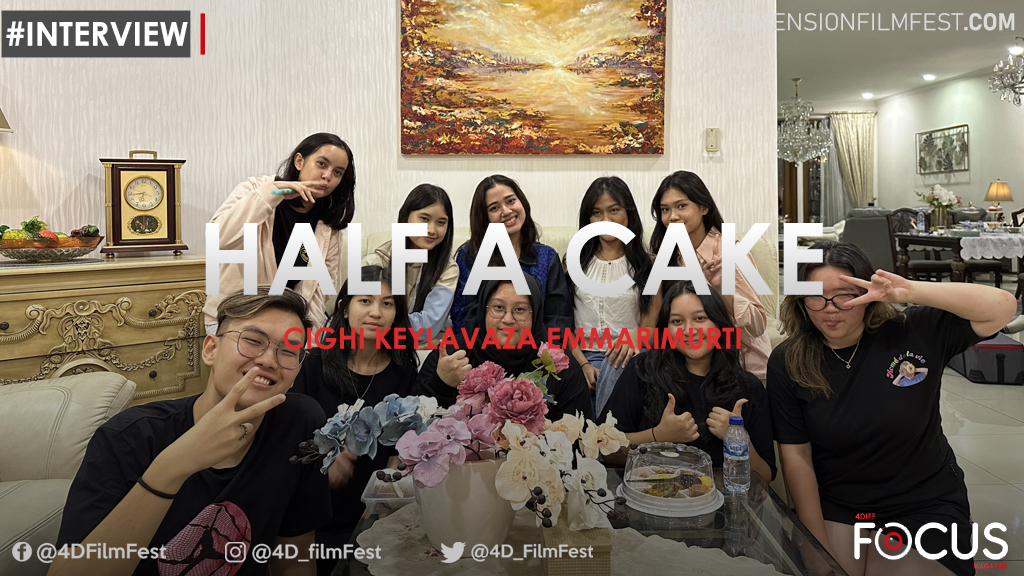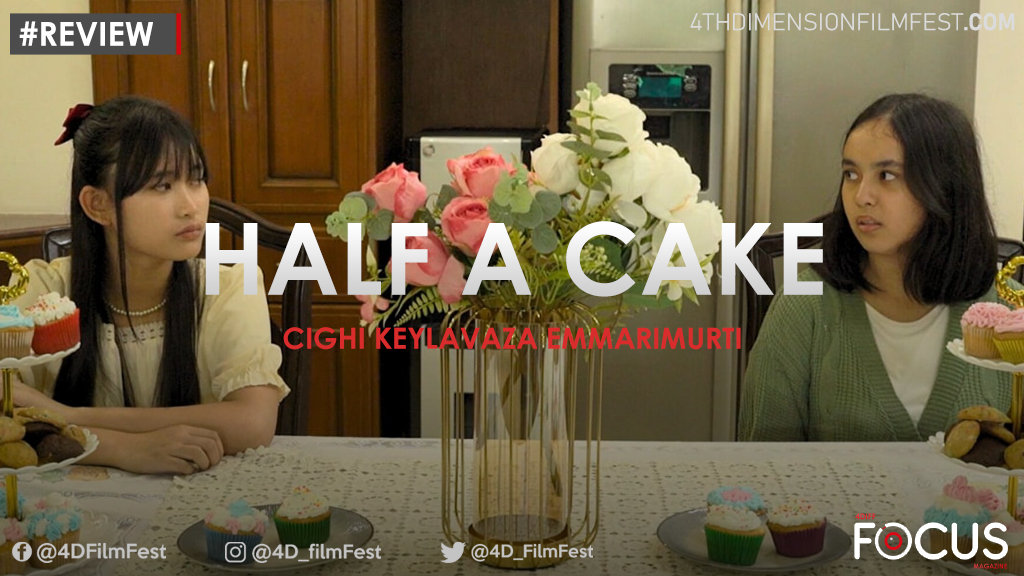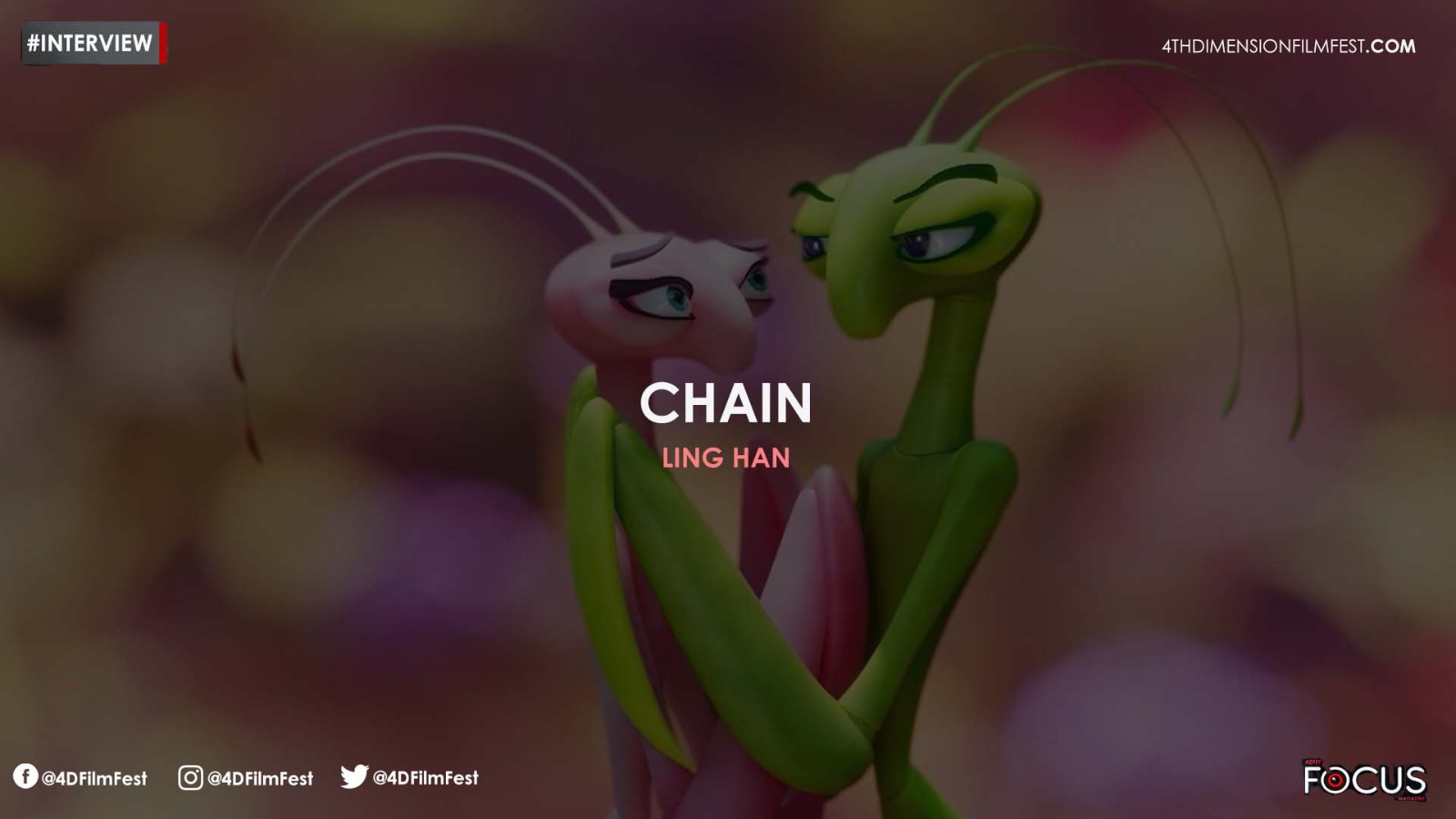Movie : Half a cake
Director: Cighi Keylavaza Emmarimurti

First of all I would like to thank you ma’am for taking time out of your busy schedule and doing this with us.
In “Half a Cake,” Nora’s journey is both personal and painfully universal. Can you share your thoughts on the complex dynamics of friendship depicted in the film? How do you see Nora and Jessi’s relationship reflecting the tensions between idealism and the fleeting nature of human connections?
During the process of writing the script, I try to break down each of the characters such as their tangible and intangible motives which happened to Nora and Jessi. They both want a sense of belonging, just in a different way. Nora wants to be understood or seen emotionally while Jessi wants to be validated socially. So the way their needs manifest is already different and that causes the tension. But other than that, I want to portray them as humans. To me, there is no such thing as protagonists and antagonists, heroes or villains, just humans with their needs wanting to be met. And humans are complex. Nora seeking closure is valid and Jessi having a life outside of Nora is also equally valid so their actions are quite unique if I should say.
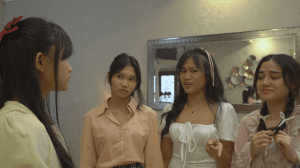
The film explores the emotional nuances of heartbreak in a non-romantic context. What inspired you to focus on the idea that a friendship’s dissolution can carry the same weight as the end of a romantic relationship? How do you think society tends to downplay this kind of emotional impact?
I think it’s because we associate “heartbreak” in a romantic context a lot, especially in our society. But relationships come in different forms too, including platonic relationships or close friends. What they have in common, at least in my opinion, is the emotional bond that was built. Only the difference is that people tend to see romantic relationships having commitment while friendships can be casual. Like society tends to say that in romantic relationships, there is commitment or goals but in friendships, it is treated casually or that sometimes people call you jealous that your friends have other friends too. But in reality, we linger on the same way because we experienced it happening in real time so it felt real and impactful in our real lives when it comes to human connections.
The theme of seeking permanence in an ephemeral world is central to the narrative. How does Nora’s pursuit of clarity in her friendship with Jessi mirror the broader human tendency to seek stability in a constantly shifting reality?
I think it’s natural for us to seek security or answers, especially if a friendship or relationship falls apart for no reason. And us humans also need security to hold on to life so I believe Nora reflects our human nature. The real life example is that we see how humans communicate to seek closure to their doubts or an answer and that’s what Nora is trying to do although it didn’t turn out the way she expected.
You’ve said that the relationship between Nora and Jessi embodies the tussle between the real and the superficial. In your view, what does Jessi’s transformation represent about the pressures young people face to conform and the ways in which those pressures can reshape their authentic selves?
Yes, one hundred percent. In fact, the whole aesthetic of the film was inspired by the coquette aesthetic and at the time I was writing the film, it was all over social media and every girl was doing it. I thought why not apply that to the film as well? That can be seen in Jessi who dresses casually like Nora and suddenly she transforms into a fashionable or materialistic girl just for the sake of being accepted. I believe the materialistic aspect of Jessi and her new friends show the superficiality while Nora’s gift to her, a heart shaped cake is more authentic because it shows her effort in their friendship. In terms of conformity, a lot of young people in my generation face this pressure especially with social media and our tendency to feel fear of missing out. I believe Jessi is also the same, she wants to fit in as much as possible and fit Amanda’s mold or her friends, thus leaving her authentic self, the same way young people nowadays do it just to be accepted which is a sad reality.

The title, “Half a Cake,” carries both literal and symbolic weight. How do you think the motif of incompleteness manifests throughout the story, and in what way does it reflect the bittersweetness of the characters’ emotional journeys?
It’s the show not tell technique, the number one rule every filmmaker has been told I bet. So I try to play around with the props as motifs like the cake and the decorations. I feel like cake or food in general, is universal because it brings people together, especially in the context of birthday parties. So to play around with the idea of a “half eaten cake” makes such a setting bitter and that it represents that relationships too fall apart. I know it’s kind of ironic that when a birthday is supposed to bring friends together, it turns into a place where friendships fall apart. As for the characters, the title mostly references Nora and Jessi’s friendship from something that was once whole now broken apart in pieces or in half which is in the ending.
The performances in the film are subtle, yet deeply moving, capturing the turbulence of adolescence. Could you talk about the process behind directing the actors to portray those moments of intense, often contradictory emotion – the anger, the indifference, and the need for validation?
I may have to agree with you that it looks intense on screen, but behind the scenes, it’s different. Every time we’re taking a scene, I communicate with them about the context of the story and brief them about what’s going to happen to their characters and how they feel. At the end, all of the actors feel more expressive with their characters. I don’t just vaguely tell them what to do, I give them space for improvisation because I believe actors are artists too. They understand how a story works. For example, Amanda’s monologue before the cake throwing scene was all improvised by her actor, Kasih Purwana who gave me the feedback that “it’s awkward if she just throws the cake, there should be something for the build up”. The body languages of Nora and Jessi were improvised by both Keren Jacobs and Aura Putri who are both portraying the two lead characters. When we shot the ending scene, Aura Putri told me it’s hard for her to cry on-screen so I suggested for her to act indifferent with a guilty tone delivery and she nailed it perfectly. Sometimes I also use popular film references like the 2003 “Mean Girls” to make the casts of Amanda’s friends, Rachel and Shelly, played by Clara Claresta and Althea Angela, respectively, understand better on what kind of bitterness and peer pressure I’m aiming for. Basically, we all collectively communicate with each other during filming. Lastly, I always rehearse the scenes or dialogues right before take, so their emotions are still kept raw on camera. As a director, it’s important for me to keep directions or visions short and simple but also structural enough that your vision is executed perfectly while leaving room for your actors and crews to let out their creativity. After all, film is a collaborative project, not a one man show.
There’s a quiet tension throughout the film, largely due to your restrained use of the background score. How do you approach scoring in a way that allows the silence to speak volumes? And what role does this approach play in intensifying the suspense and emotional stakes of the narrative?
It’s an artistic choice for the audience to feel a sense of emptiness and alienation. I wanted to show the gap and space of being distant in a place where you should belong but instead, being outcast hence the minimal use of scoring.
The moment when Nora decides to sever her ties with Jessi is significant, but also incredibly painful. What do you hope the audience takes away from this choice, particularly in terms of the complexity of standing up for one’s emotional well-being, even at the cost of a cherished friendship?
My takeaway as the director is mainly to learn and accept reality as it is, including a friendship that is already falling apart. I hope Nora’s way of taking her stance inspires the audiences that sometimes letting go is the best option instead of letting the pain consume us.
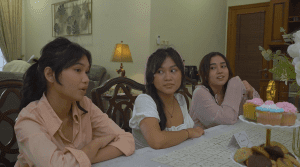
In the context of the film, Nora’s emotional arc is one of gradual self-realization and empowerment. How do you see her final choice to walk away from Jessi as an act of both personal growth and a painful acknowledgment of life’s inherent disappointments?
I see her from being idealistic to realistic. She expects a lot from Jessi in their friendship and even wanted to be included. But when she realizes how mean Jessi’s intentions are through Amanda and her friends, it is a painful truth for her that Jessi only wants validation, nothing deep or meaningful and she grew more realistic that not all friendships last, including her own.
The film is deeply reflective of the inner turmoil that accompanies the transition from adolescence to adulthood. In your opinion, how does “Half a Cake” explore the loss of innocence and the harsh realities of adulthood, particularly through Nora’s experience?
To be honest, I never thought of my film that way. But if that’s what you believe, then I appreciate it. If I could answer your question, I think the loss of innocence in “Half a Cake” is accepting a bitter truth that sometimes life doesn’t turn out the way that we want.
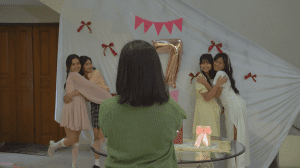
At the end of the film, is there any sense of closure for Nora, or is the final scene more of an acceptance of the ambiguity that life often offers? What do you want the audience to feel as the credits roll?
If there is a conclusive ending, I’ll leave that up to the audience. Whether Nora became accepting of reality, still heartbroken, or stronger, it’s up to the interpretation of the audience. Speaking of which, I always aim for the audience to think as the credits roll to reflect about the film, the theme, or their emotions.
What do you think “Half a Cake” says about the human condition, specifically our tendency to cling to relationships and experiences that may not be sustainable, but also how we grow from them despite their impermanence?
Humans are inherently social creatures. It’s been that way even before civilization began through communities and such. In a way, “Half a Cake” portrays that, even as small as friendships are a way for us to seek company. I believe it’s just our human nature that we cling to any form of relationships for that sake. But also, not all relationships, especially friendships are sustainable. Many are toxic and I think people in my generation feel this a lot with the “fake friends” they encountered.
The film leaves us with a sense of unresolved tension between the characters, even after Nora’s final decision. How do you view this open-ended nature of the narrative? Does it suggest that some stories are never fully concluded, much like the half-eaten cake, symbolic of the unfinished emotional journeys we all face?
The open-ended ending represents what life is, at least to me, full of uncertainties and unknown chapters and adventures in our lives. And I want the audience to embrace that more, especially when they expect films to have a conclusive ending the same as how life goes on.
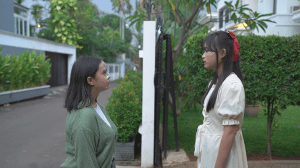
In Half a Cake, there’s a distinct moment when Nora faces not just the external pressures of Jessi’s new friends, but her internal conflict about who she wants to be. How does this inner struggle contribute to the overall message of the film?
That’s a good question, because I don’t see Nora’s internal conflict to conform or being accepted. Though again, any interpretation is appreciated. I would say as a director, Nora’s inner conflict is to seek an answer to her doubt in the friendship and emotional closure. I think the problem of conformity is reflected more on Jessi because she wants to be a part of Amanda’s group or known as popular so she joins in with the bullying so she can be accepted by Amanda.
Finally, the title is also evocative of an unexpected ending—a moment of hope that remains unrealized. Do you see Half a Cake as a critique of the way we romanticize ideal outcomes, or is it more about learning to live with imperfection and ambiguity?
I agree more towards the latter. If there is a critique, I would say that friendship breakups are just as impactful as romantic breakups and that society should shed a light on it more. But I’m trying to emphasize that life is both bitter and sweet and people should embrace the sweetness of life and learn from the bitterness from “Half a Cake”.
Thank you so much again ma’am!


